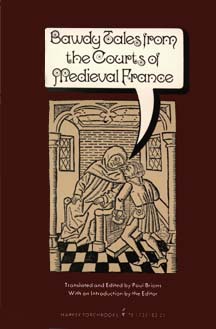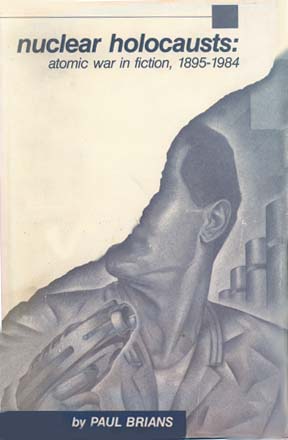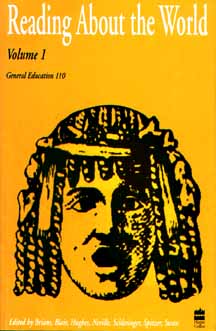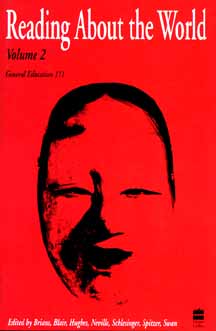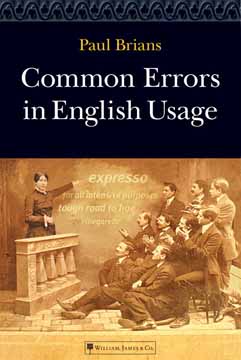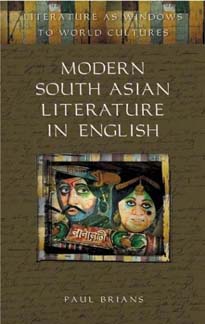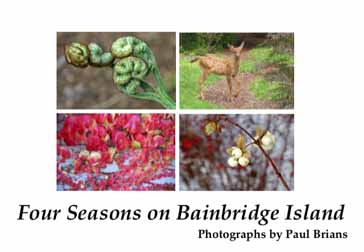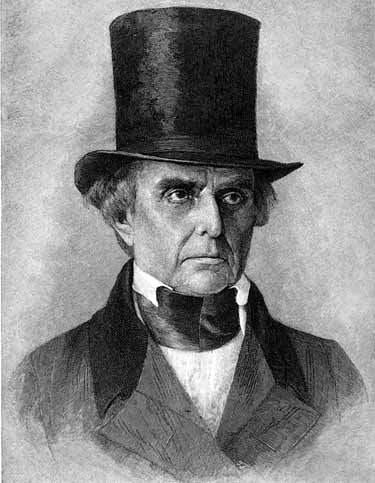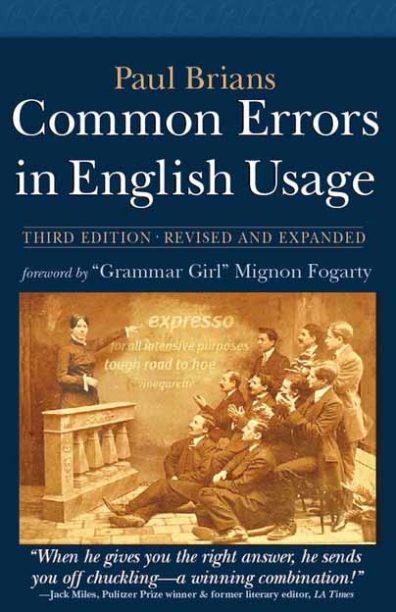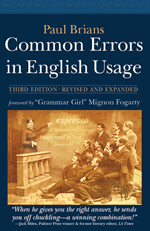For Philosophy
elizabeth.wassonFor Philosophy
Encyclopedia of Philosophy
Philosopher’s Index
The Humanities Index (available online through Griffin)
If a library lacks one of these, ask a librarian to show you something similar.
Tips:
Begin by looking up your topic in the Encyclopedia Britannica, available through the WSU Libraries pages here. Note bibliographic citations at the end of the articles you read; these may be sources you’ll want to track down. Other computer-based encyclopedias like Encarta are inadequate for the kind of research you will be doing.
Go to WSU Libraries. This is a huge and powerful database (which may also be available online or on CD-ROM at a library near you), but it needs some care in using it. Many other libraries have bound, printed volumes of this as well. Here are some tips:
Don’t use the MLA bibliography to look for articles about Voltaire or Nietzsche. It is best for literature, not philosophy.
After you do your intial search, you can use the “limit search” button to restrict the search to articles and books in English unless you are fluent in some relevant foreign language. Or, alternatively, when you first enter MLA, you can click on the button marked “Advanced Search” and narrow the search to English before you start.
Entries are given ten at a time. To see the next ten, click on the “Next Page” button.
Ignore references to dissertations. You do not have easy access to these and they are usually not considered authoritative sources.
Using the on-line version, copy and paste the bibliographic data into a word processing document to save you time. You can reformat it later.
Do not assume that all these books and articles are available in the WSU library; but you may well be able to get some of them through Summit.
In the case of journal articles you want from WSU note that many of the online databases such as Project Muse go back only a few years–you will need to search the last 25 or 30 years for many of these topics.
Similarly, if the item you are seeking is actually a chapter in a book rather than in a journal, search for the title of the book it appeared in, not the author or title of the chapter.
In the case of books, use the Griffin Catalog at http://www.systems.wsu.edu/griffin/wsugate.htm to search for the author or title. If you have only a subject, but no author or title yet, note that often a keyword search is more effective than a subject start to get started. For instance, to find the English translation of the source of Bizet’s Carmen you need to use “Carmen” and “Merimee” as keywords (you would have read in Grove or the Britannica that Prosper Merimée wrote the original novel).
The MLA Bibliography online covers articles published since 1963, and in the earlier years, many interesting journals were not indexed. But you can read the bibliographies of the articles and books you find here to discover what the classic earlier works are which discuss your topic.
Do not stop at the first few hits. Not all the information you find will be useful. You need to do some background reading on your subject to get a sense of which sources might be helpful. This is the reason for checking the encyclopedia first, before starting your MLA search.
Finally, local students find your materials in the library, and DDP students use the “Request This Item” button in Griffin.
To begin your library research, start at the DDLS website http://www.wsulibs.wsu.edu/electric/library/, in the left-hand frame, click on “Article Indexes/Full Text & More,” then on “General & Multidisciplinary.” There are several databases on this page that may be helpful to you, depending on your topic:
1. ArticleFirst (request articles from DDLS)
2. JSTOR (full-text)
3. Oxford English Dictionary (full-text)
4. WorldCat (request items from Interlibrary Loan, or DDLS)
At the bottom of the “General & Multidisciplinary” page, you will find another link to “Humanities” resources. Click on that link, and you will find the following databases which may be useful:
1. Art Abstracts (request articles from DDLS)
2. Arts & Humanities Search (request articles from DDLS)
3. Grove Dictionary of Art (full-text)
4. Grove Dictionary of Music & Musicians (full-text)
5. International Index to Music Periodicals (request articles from DDLS)
6. MLA (request articles from DDLS)
7. Project Muse (full-text)
8. ProQuest Direct (many full-text)
Beware of sources dating back before 1950; most of them are out of date. Normally I will not accept such sources. If you are unclear on how to access any citations you find in the above databases, contact DDLS. (DDPlib@wsu.edu or 1-800-435-5832)
Another service available through Griffin is WorldCat via FirstSearch. Start at the usual Gateway page and click on “Article Indexes/Full Text & More,” then on “General & Multidisciplinary,” then on “FirstSearch.” If you can’t figure out how to create and use login ID and password, ask a librarian. DDP students write Extended Degree Library Services at DDPlib@wsu.edu or phone (800) 435-5832. Once inside FirstSearch, click on the first “Database Areas” link: “Arts & Humanities. Then, under “General Databases,” click on “WorldCat.” This database will give you mostly books, not articles. Some of them may be very old. Beware of sources dating back before 1950. Most of them are out of date. By clicking on “Limit Search” you can limit your search to books dating 1950-1999, or any other two years you want, and while you’re at it, limit the language to English. FirstSearch may tell you whether the book is in the WSU library; but you may also be able to borrow a book we don’t own from another library near you or through the Interlibrary Loan service of your local library. This latter option, however, can be a very slow process, so you need to plan weeks in advance if you want to try it.
A faster alternative is Summit, a free interlibrary loan service for certain Washington and Oregon libraries only. This can be especially valuable if the only copy of a book you need is checked out from WSU. If you do not find what you want in Griffin, click the green “Search Summit” button. Again, ask your librarian if you have questions.
In looking for books, the obvious place to start is Griffin itself. Remember: you cannot search for article titles or authors within Griffin, only for the titles of journals which contain such articles. The natural temptation is to search by subject, but this is usually a mistake unless you know the precise wording of the Library of Congress description of the subject you are looking for. Instead, use “keyword” searching to type in terms that are associated with your subject.
ProQuest, also available through Griffin, is good for doing research on current events, but is rather poor for the kinds of subjects you will be studying in this class. Because ProQuest only goes back to the mid-1980s it is missing many important and useful articles that are included in the MLA bibliography. In addition, MLA contains books as well as articles while ProQuest is confined to articles only. Its only advantage over MLA is that you may be able to view articles you find either as a whole or in part on your computer screen, without having to wait for them to be sent by the library. Give it a try, but don’t spend a lot of time trying to do serious research there. Librarians will be able to give you advice about which databases are most appropriate for your subject.
Searching the Web
The Web is good for pictures, dates, and basic information; but it should not provide the main sources for your paper. Papers based mostly or entirely on Web research will not receive passing grades. Here are some tips on Web searching to get you started. Serious scholarship on the humanities in Europe during the 18th and 19th centuries is spotty at best online. However, there are some extremely valuable sources out there. Here are some tips to guide you as you search.
Be flexible about trying different search terms. This bit of advice applies to all kinds of searches, not just on the Web. If you are searching for Voltaire’s influence on the French Revolution, you will probably also want to look separately for sites dealing with Voltaire and sites on the history of the French Revolution. You might also look for the terms “enlightenment” and “revolution” together.
Google is now the premier search engine because it gives better results for most searches, by finding first the sites to which most other sites have linked. The upshot is that pages that others have found useful bounce immediately to the top of Google’s hit list. Try typing in “influence of the enlightenment on the french revolution” (between quotation marks) in Google and you’ll find a ton of papers on this topic other students have written. Be cautious about using them as sources–they aren’t necessarily experts, but you can certainly get ideas here. Just don’t copy them. Remember, I can find these sources just as easily as you can.
Here’s an important tip. The first time I tried this, I mistyped “enlightenment” as “enlightnement,” and found only five pages whose authors had made the same typing error–all of them useless. If you get an unexpectedly small number of hits, check your spelling.
Asking an Expert
Sometimes the easiest way to find a good Web page is to ask someone knowledgeable; but how do you find such a person?
The obvious answer, is TRY ME! In fact, part of this assignment involves me or a librarian giving you suggestions about what sources to look at. You are absolutely expected to follow up on these suggestions. Papers which turn out weak because suggestions were ignored will receive a failing grade. For instance, anyone who is interested in writing about Voltaire and the French Revolution is always told by me to look at an old but excellent source: volumes 7-10 of Will Durant’s The Story of Civilization. These are big fat volumes, so may look forbidding; but a few minutes spent with their indexes will teach you more about your topic than many hours of Internet searching (and they’re wonderfully readable). They also have the great advantage of being in just about any library, even small local ones. But the only way you are likely to hear about these books is from me. Asking for help is not “cheating”; it’s one of the main skills we are trying to teach you.
Doing your research
Step 1: Gathering and selecting information
One of the secrets of a good research paper is gathering much more information than you will actually use at the end. You want to avoid at all cost writing a paper on sources you don’t understand. Let’s look back at an article I once found on “The Influence of the Enlightenment on the French Revolution” at the Mining Co. (now defunct). Looking more closely, I found that it refers us to arguments by Edmund Burke and Thomas Paine about the French Revolution. (I also note that the author was not particularly skilled in spelling and punctuation; I wouldn’t want to copy his errors.) In fact, this was a page from a course in which students were reading articles by these two authors. The names are vaguely familiar, but if you look their names up in the encyclopedia you’ll discover that the first was an Englishman and the second an American. Therefore these people may have analyzed the French Revolution; but they were not themselves French, or involved in the Revolution directly. We may decide not to use them, because they tell us more about what non-French contemporaries thought about the Revolution than what modern historians think about it. Encyclopedias are great resources for giving us background information to help explain what we are reading.
Suppose you had used Griffin to look for books whose titles included the words “French Revolution” and found Roger Lawrence Williams’ The French Revolution of 1870-1871. But because you have done background reading on the revolution in the encyclopedia, you realize that this book can’t possibly refer to the 1789 revolution. In fact, there were several “French revolutions” of which only the 1789 one is usually referred to as the French Revolution. You have to know enough about your topic to reject irrelevant sources like this.
Step 2: Evaluating information
Judging authoritativeness
If you find a book in a scholarly library or in the pages of a scholarly journal, it has probably gone through one or more screening processes to ensure that it has some degree of authority and reliability. However, anyone can publish anything on the Web, which is filled with amateurish, biased, fraudulent and satirical pages which can damage your paper if you depend on them. How do you decide whether a Web source you’ve found is from a trustworthy source?
- Trust brand names. Articles in the Encyclopedia Britannica may not be perfect, but they come from respectable sources.
- Look for scholarly authorship. Is the author a specialist in the field working for a famous or distinguished university?
- Do other people frequently refer to this source as authoritative? Check bibliographies.
- Has it been selected by some thoughtful scholarly group such as the people who run The English Server at the University of Washington (http://eserver.org/) or created by a well-known institution such as the New York Metropolitan Museum of Art (http://www.metmuseum.org/)?
Judging Comprehensibility
Use a source only if you understand it. Of course you can increase your comprehension by using dictionaries and encyclopedias; but, if even after trying that, much of what you are reading remains obscure to you, move on to another source you can better understand. Trying to use a source which the student author has not understood is a fatal flaw of many research papers.
Judging relevance
Not every item you find by using a key word or subject search will really be relevant to your topic. You need to define the topic of your paper yourself, not let it be defined by a dumb search engine. This almost always means learning more about a topic than you will be able to use directly in your paper. Be ruthless about throwing away irrelevant material.
Detecting bias
Suppose you had found the site called “The French Revolution” which seemed pretty well organized and straightforward. But as you read through it you note numerous Biblical quotations and much discussion of religious issues. You slowly realize that the author of this site has a very definite point of view: he is a conservative Christian attacking the ideas of the Enlightenment as expressed in the French Revolution. You may or may not agree with him, but you need to judge his words in the light of that information and compare what he says with what other historians say. You may also realize that this is mostly a lecture outline and that you would have to attend his course to get the real substance of his arguments. Don’t let yourself be “captured” by a single source.
Getting help
If you are having trouble deciding whether a source you have found is useful, share it with me and let me advise you. Constant communication with the teacher is an essential tool of doing good research. Don’t flounder on your own. If the source is a Web page, send me the URL at brians@wsu.edu.
For help with the WSU library, write Extended Degree Library Services at DDP@wsu.edu or phone them at (800) 435-5832.
Step 3: Taking notes
Photocopiers and Web browsers have made the gathering and reproduction of raw data much easier; you can even use recent versions of Microsoft Word to open a Web page directly and save it as a document. However, this is not note-taking. Nothing is more frustrating than sitting down on the night before a paper is due to that pile of photocopies and books you gathered weeks ago, only to find that most of it is irrelevant junk and that you desperately need other materials. Spend a good long time in the library or on the Web looking closely at the resources you find to decide whether they are worth copying, checking out, or otherwise reproducing them. A highlighter can be a useful tool in marking important passages (just don’t use one on a library book!), but ultimately you’ll need some real notes. The old file-card system still works well; but if you’re comfortable at a computer you’ll find that organizing your notes in a database or the outline view of your word processing software will work even better. Make sure that every note is securely tagged as coming from a specific source with a complete bibliographic citation (author, title, etc.)
Once you have a good many notes, begin to sort them into groups by topic. Try various arrangements, and a structure for your paper should slowly emerge.
Step 4: Organizing your paper
Always begin with at least an informal outline. Don’t just start writing without any notion of where you are headed.
Create some logical order for your paper. A chronological order may explain how some idea developed. A geographical order may relate a topic across national boundaries.
Digest your sources and use them for your own purposes. A summary of an article followed by another summary of a different article, and so on, is not a paper. It is just a set of notes. You need to compare sources, often referring to two different ones in the same paragraph or even sentence.
Avoid making your big points first and then trailing off into minor ones. Structure your paper to lead up to a strong conclusion.
Step 5: Making Citations
For this class, you will use the Modern Language Association format, which is explained in Arthur C. Banks’ helpful “Guide for Writing Research Papers” at http://webster.commnet.edu/mla/index.shtml Pay close attention to the section on “Parenthetical Documentation.” Do not substitute APA style, in which only last name of the author and the date of the article are given. This does not work in the humanities. Page numbers are crucial.
Cite only sources you actually use; use only sources you cite.
Call your list of sources “Sources Cited,” not “Bibliography.” A bibliography is a much more ambitious and thorough project than what you will be doing for this paper.
EXTREMELY IMPORTANT!
Cite a source not only when you quote from it, but when you paraphrase from it or draw ideas from it. Failure to do so is plagiarism, and can incur severe penalties (typically, failing the course).
Always introduce your sources by name; don’t just start quoting them. For instance: “Jessica L. Rabbit argues in her article on Los Angeles history that . . . (98).” Note when you mention the author of an article or book in this way, you need not repeat it in the parenthetical citation. Later citations from the same source do not always need introduction if they occur soon after the original one, so you can just cite the source as follows: “(Rabbit 72).”
For information on how to cite Web sources, see this Web page.
Avoiding plagiarism
Computers make it easy to copy. Don’t be tempted. Computers also make it easy to track down the sources of copied information. I am ruthless with plagiarists. Persons caught plagiarizing material in their papers will not be allowed to revise for a better grade. All cases of plagiarism will result in a failing grade for the course and a report to Student Conduct.
Other helpful documents
Be sure to check out these before you write your paper:
MANDATORY: Helpful Hints for Writing Class Papers
OPTIONAL BUT EXTREMELY USEFUL: Common Errors in English
These contain directions for avoiding my pet peeves.
Length
The minimum length for this assignment (see syllabus) is very, very short for a research paper. Unless your writing is wonderfully concise, you will need to write more. If you cannot stretch your material to this minimum you don’t have enough material or–more likely–aren’t examining it closely enough. Believe it or not, the chief reason people run out of things to say is that they have defined their topics too broadly. A narrow, tightly-focused topic will allow you to get specific and dig into the finer shades of the topic, and finding enough to write about will be no problem. Avoid vague generalizations.
If your paper reads like an encyclopedia article, giving an overview of a person’s entire career, it is too broad. You need to focus on a narrow subject within the general work of the writer, artist, philosopher, or musician. You should not write at all about their birth, childhood, and education unless they are strictly relevant to your topic.
If you are writing about one of the books we study in this class, your paper needs to go well beyond the ideas and facts presented in the relevant study guide. You are supposed to become something of an expert in your subject, and come up with new information and ideas not already discussed in class.
Revising your paper
Almost all the papers in this course should be revised at least once. That is part of the point of the class, teaching you how to write better. Be sure to incorporate suggestions that are made, particularly broad, general ones like “this section lacks focus–concentrate on a single topic.” Merely cleaning up typos and spelling errors is not revision–it’s proofreading, and will not improve your grade.
Be careful about trying to solve problems by simply moving chunks of text around. Usually you have to do some actual rewriting to improve a paper. When a paragraph is moved, it often needs to be adjusted somewhat to fit within its new environment. If I ask you to develop a section further, do not simply cut it out. You get no increase in grade for simply making the specific spelling and grammatical changes I suggest; you have to do actual rewriting for that.
Seeking help
The point of this assignment is not to fling you in the sea of knowledge and stand by to see if you can avoid the sharks; it is to teach you something more about how to do research in the humanities and write about it. You get no credit for struggling silently on your own. Again, please use the resources available to you: For questions about this assignment, ask me. Keep asking me questions and sending me ideas. If you find yourself tempted to tell someone else “I don’t know what he wants,” it means you need to ask me more questions. For help with the WSU library, ask the DDP librarian at DDPlib@wsu.edu or phone them at (800) 435-5832. If you need help with your writing, try the WSU Online Writing Lab at http://owl.wsu.edu/. You can send them drafts of your paper and they will help guide you through the process of revising it. You can even arrange to “chat” with a writing tutor in a chat room about your work. Take advantage of this terrific resource.
Step 6: Submitting your paper
Pullman students will hand in printed copy in person, but for DDP students, unlike most of your weekly writing assignments, which can be pasted into the forms in the Bridge, you need to send formally formatted papers through “My DDP.” This method is simple and works quite well, but write or phone DDP if you have any questions about how to use it. Be aware that papers submitted through My DDP may take up to a full working day to reach me.
I can open documents created by any version of Microsoft Word and many other word processors. If you are using Word Perfect, or some other word processor, let me know. I can open most of them, but there are a few I can’t.
I can also open any document that has been saved as HTML or in Rich Text Format (RTF).
Revising your paper
Your first draft will be marked up and commented on, but not assigned a letter grade. You will receive credit and a grade for for this paper only after having revised it. Fixing typos and other small slips according to my suggestions is mandatory, but not an important way to improve your grade. The only way to get a good grade is to follow the suggestions spelled out at the very end of your paper, which may call for more research, narrowing of topic, or reorganization of your paper. Note that this revision is mandatory, and that it must be done in order to pass the course.
Created by Paul Brians, July 2, 1998
Revised May 10, 2005
